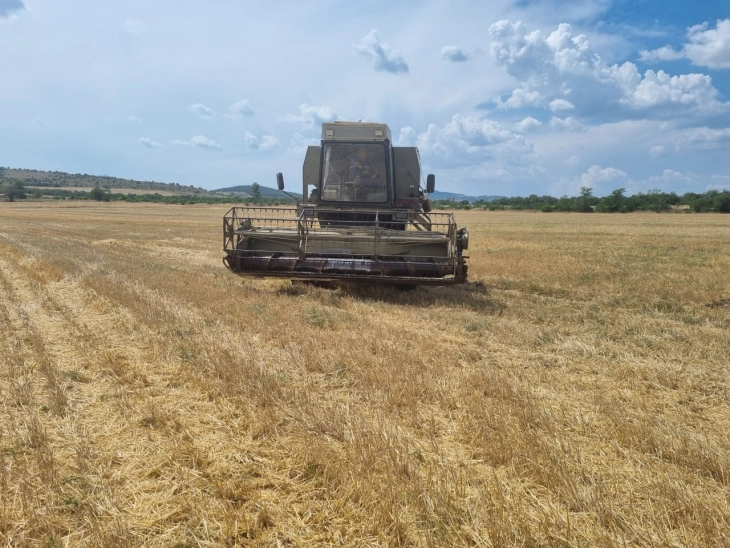EU support for land consolidation

Skopje, 3 November 2022 (MIA) – European Union Ambassador David Geer, Minister of Agriculture, Forestry and Water Economy Ljupcho Nikolovski, and De facto Head of Food and Agriculture Organisation in North Macedonia Nabil Gangi will present Thursday the assistance provided by the European Union and the United Nations towards land consolidation in North Macedonia.
Full-fledged land consolidation process is set as an ultimate objective under the National Strategy for Agriculture and Rural Development 2021 – 2027. The European Union (EU) and Food and Agriculture Organisation of the United Nations (FAO) support the implementation of the national policy on land consolidation and planned rearrangement of fragmented land parcels and their ownership in North Macedonia, the EU Delegation to North Macedonia said in a press release.
The joint assistance, principally led by the EU is stretched in 2 project phases: first, “Mainstreaming of the National Land Consolidation Programme (MAINLAND)” worth €2.86 million (of which €0.36 million contribution by FAO) for assessing the feasibility of land consolidation in 14 rural areas during the period March 2017 - November 2022. Of these, 9 had their plans for land re-allotment or for agricultural infrastructure improvement developed further: Konche (Municipality of Konche), Egri, Logovardi, Optichari, Trn (Municipality of Bitola), Dabjani (Municipality of Dolneni), Kozhle (Municipality of Petrovec), Sokolarci and Spanchevo (Municipality of Cheshinovo-Obleshevo); ‘’Enhancing Land Consolidation in North Macedonia’’ worth €1.2 million (of which €0.2 million contribution by FAO) for full-fledged land consolidation of Dabjani (Municipality of Dolneni) and Chiflik (Municipality of Cheshinovo-Obleshevo) during the period August 2022 – January 2026.
The structure of 4,700 ha agricultural land will be improved by reducing land fragmentation and facilitating farm enlargement. The benefits are multi-fold for some 6,300 landowners and farmers and include improved rural infrastructure, strengthened economic stability because of raised incomes of the agricultural holdings and better competitiveness of the agricultural sector. This makes both the agriculture and the environment sustainable.







